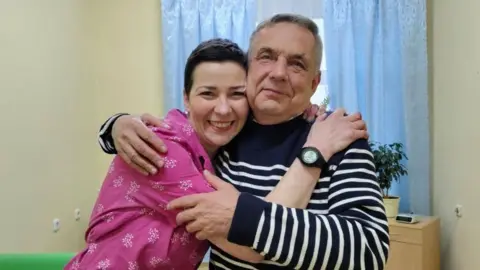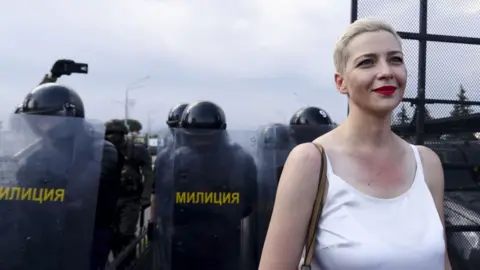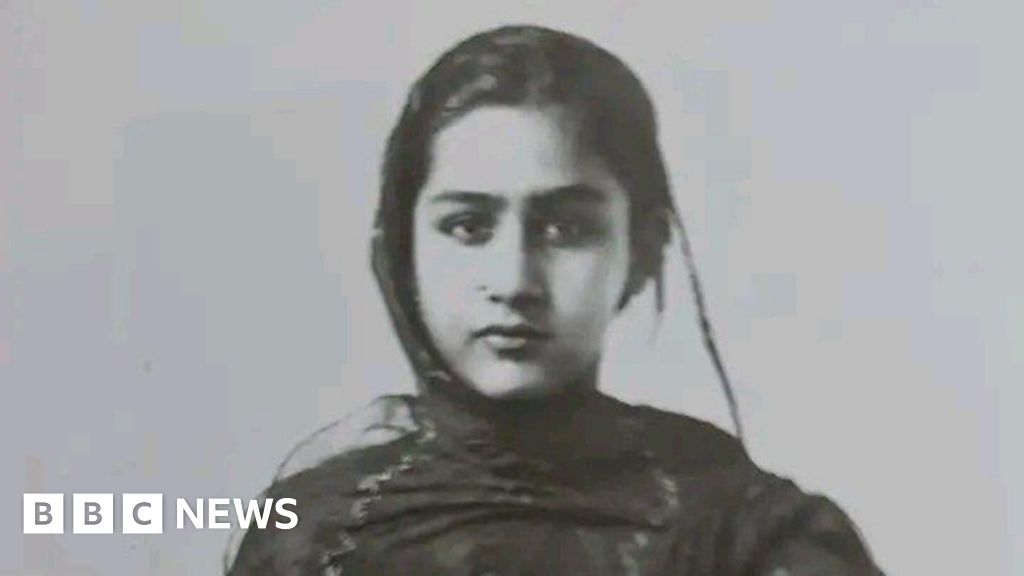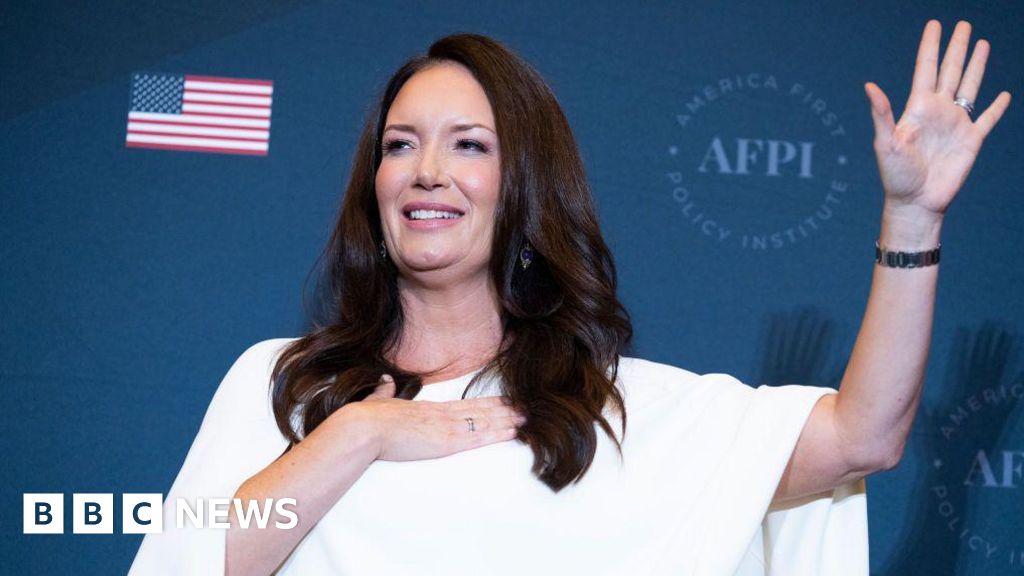
 @Tsihanouskaya
@Tsihanouskaya
"I cannot believe it!" wrote Maria Kolesnikova's sister on X
After more than 600 days of denied visits, calls and correspondence, the jailed Belarusian opposition activist Maria Kolesnikova has been allowed to see her father in prison.
A photo, published on social media, shows the activist in what appears to be a prison housecoat hugging her father.
On her face is the smile she became famous for as one of the leaders of a wave of giant protests in 2020 that put the authoritarian regime of Alexander Lukashenko under unprecedented pressure.
It survived by responding with mass arrests, police beatings and torture - all thoroughly documented, but still flatly denied by officials.
A peaceful protester, Maria Kolesnikova was sentenced to 11 years for extremism and supposedly plotting to overthrow the government.
In September, her sister, Tatsiana, told the BBC that she was worried the Belarusian regime was "killing Maria slowly" in jail, where she had been kept in punishing conditions since March 2023, and was not allowed any contact with relatives or lawyers.
Tatsiana called then for more international pressure to secure her sister's release, and the freedom of the many other political prisoners in Belarus.
Now, she has posted the new prison photo on X with the line: "I cannot believe it!"
The family have not yet shared any information about her health.
In an odd twist the photo was first published on Telegram by the former opposition journalist Roman Protasevich, who was arrested when his Ryanair flight over Belarus was forcibly grounded. He now cooperates with the authorities, after a presidential pardon and early release.
Mr Protasevich has given no details about the picture of Maria and her father, or the circumstances.
- Belarus isolates political prisoners to break their spirit
- 'I don't regret anything', Kolesnikova tells BBC
Alexander Lukashenko, in power since the early 1990s, has called another presidential election in January in which no genuine opposition candidates will be allowed to take part.
Recently, perhaps hoping to improve his image, he began pardoning small groups of prisoners.
More than 70 have been set free since summer, including people jailed for participating in the 2020 protests, but most were close to the end of their sentence or sick.
An announcement last week stated that another group jailed for "extremism" would be pardoned. It promised "big news", and said two women were on the list.
But Tatsiana told the BBC that she did not believe the sudden reappearance of her sister for a prison visit meant she was about to be set free.

 Getty Images
Getty Images
Maria Kolesnikova, shown here in 2020, rallied crowds in nationwide protests after Lukashenko claimed yet another landslide election win
Svetlana Tikhanovskaya, now in exile after running for election against Lukashenko, sent a short video on Telegram with greetings for "Masha", as she called Maria affectionately, and expressed "joy" to see her reunited with her father.
"How happy I am to see the smile that captivated us in 2020 and stays the same despite all you've been through," Tikhanovskaya said.
Writing on X she added: "Now, we must keep up the pressure to break the isolation of other political prisoners & free them all!"
Tikhanovskaya's husband, Sergei, is one of those still in prison and has also been kept incommunicado for many months, as have other political prisoners including Viktor Babaryko - another would-be presidential candidate locked up in 2020.
Franak Viacorka, an adviser to Tikhanovskaya, told the BBC that Lukashenko's gesture to Maria was tokenism.
"Lukashenko is afraid right now to make any big moves and changes before his sham election - his self-reappointment. Just showing Maria doesn't threaten him, but he wants to show it as a big gesture of humanity - which it's not of course," Mr Viacorka believes.
He put the gesture down to a recent increase in international attention and pressure.
Lukashenko has been an international pariah for many years, with the European Union condemning the 2020 election results as "falsified".
As for others still held, Mr Viacorka said: "I dream of the moment my friends and colleagues are released. But I am a realist."

 1 week ago
4
1 week ago
4










 English (US) ·
English (US) ·